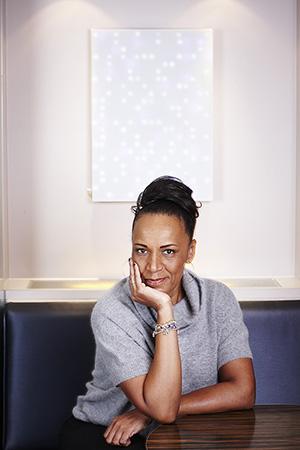
Spitzer School Dean Lesley Lokko writes essay entitled “The Age of Wildfire” for “e-flux Architecture."
Lesley Lokko, dean of the Bernard and Anne Spitzer School of Architecture at The City College of York, published an essay in “e-flux Architecture” entitled “The Age of Wildfire” dealing with the issue of educational space. Lokko began writing when she left South Africa in 2019 and concluded in the midst of the COVID-19 pandemic.
Prior to joining City College, Lokko was based in South Africa for five years as the director of the Graduate School of Architecture at the University of Johannesburg. She grew the school’s graduate program from 11 students to over 100 during her tenure.
In the piece, Lokko mentions the graduate school being founded on the back of an existing master’s program at the university, which happened at an “extraordinary moment of political crisis brought about by two large-scale student protests […] and forced the words ‘decolonization’ and ‘transformation’ onto the national consciousness in a society that has always struggled to define itself.”
Due to the quadrupling in size of the program, which started in 2015, there was a lack of infrastructure, such as studio space, offices and workshops. She goes on to say that the protests, although political in nature, were about students’ lack of access to space and form.
“Part of the school’s success stems from the fact that the instructors (tutors) are themselves deeply engaged in the exploration of what it means to transform a curriculum, a discipline, a practice,” she wrote. “Through deft mélanges and mixtures of media—film, written word, fiction, oral storytelling, and performance—they lead students towards new ways to describe, craft, and explore space, material, and structure(s), all of which point to their capacity to imagine what is not yet here.”
Lokko has taught and practiced architecture for the past twenty-five years in schools across the U.K., U.S. and South Africa and is also a best-selling novelist. She is best known for her work on the relationship among race, cultural identity and the speculative nature of African architectural space, and she has lectured widely in Europe, the U.S., Australia and across Africa.
About the City College of New York
Since 1847, The City College of New York has provided a high-quality and affordable education to generations of New Yorkers in a wide variety of disciplines. CCNY embraces its position at the forefront of social change. It is ranked #1 by the Harvard-based Opportunity Insights out of 369 selective public colleges in the United States on the overall mobility index. This measure reflects both access and outcomes, representing the likelihood that a student at CCNY can move up two or more income quintiles. In addition, the Center for World University Rankings places CCNY in the top 1.2% of universities worldwide in terms of academic excellence. Labor analytics firm Emsi puts at $1.9 billion CCNY’s annual economic impact on the regional economy (5 boroughs and 5 adjacent counties) and quantifies the “for dollar” return on investment to students, taxpayers and society. At City College, more than 16,000 students pursue undergraduate and graduate degrees in eight schools and divisions, driven by significant funded research, creativity and scholarship. CCNY is as diverse, dynamic and visionary as New York City itself. View CCNY Media Kit.
Ashley Arocho
p: 212.650.6460
e:
aarocho@ccny.cuny.edu
View CCNY Media Kit.